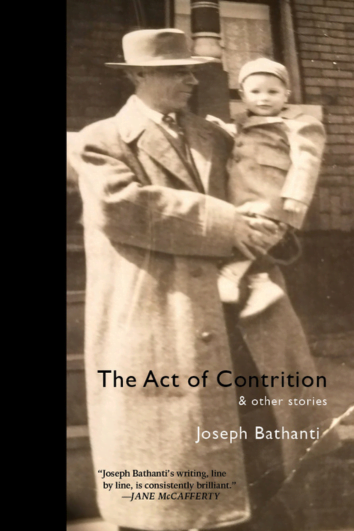By DAVID RYAN
Jonathan finds the shirt on the closeout rack at a trendy vintage shop in Provincetown. He’s never heard of the maker, the satin tag embroidered in the neck as if by hand, it looks British, probably twenty, thirty years old, this short sleeve—the cloth heavier than cloth, at least the cloth of shirts he might normally afford. The muted blue-green-grey rayon shimmers, the smallest blues and greens houndsteeth fused into a strange harmony within the gray and fine-lined black blocking. Its gentle plaids inferentially iridescent. And this, like an aura hovers about the shirt, its inferred past, as if the weave of fibers are quietly singing an elegy, an amassing of light. He fingers the cloth, imagines the fingers of a millworker feeding the cord into a sewing machine, shuddering wooden bobbins in some industrial town. And then he tries it on.
It’s his favorite shirt for a couple of years. One night, he wears it over a white, long-sleeved henley to a club where a friend of a friend knows the singer in the band playing. Jonathan and his friend get backstage. For reasons later forgotten—perhaps in a fit of generosity produced by the free bourbon in the dressing room, he lets the drummer, who’d commented on how beautiful the shirt was, wear it on stage. Jonathan and his friend return to the audience for the show. There his shirt appears, on stage, shimmering under the lights, and the moment of its glory, strangely perhaps, feels as if belonging to Jonathan.













